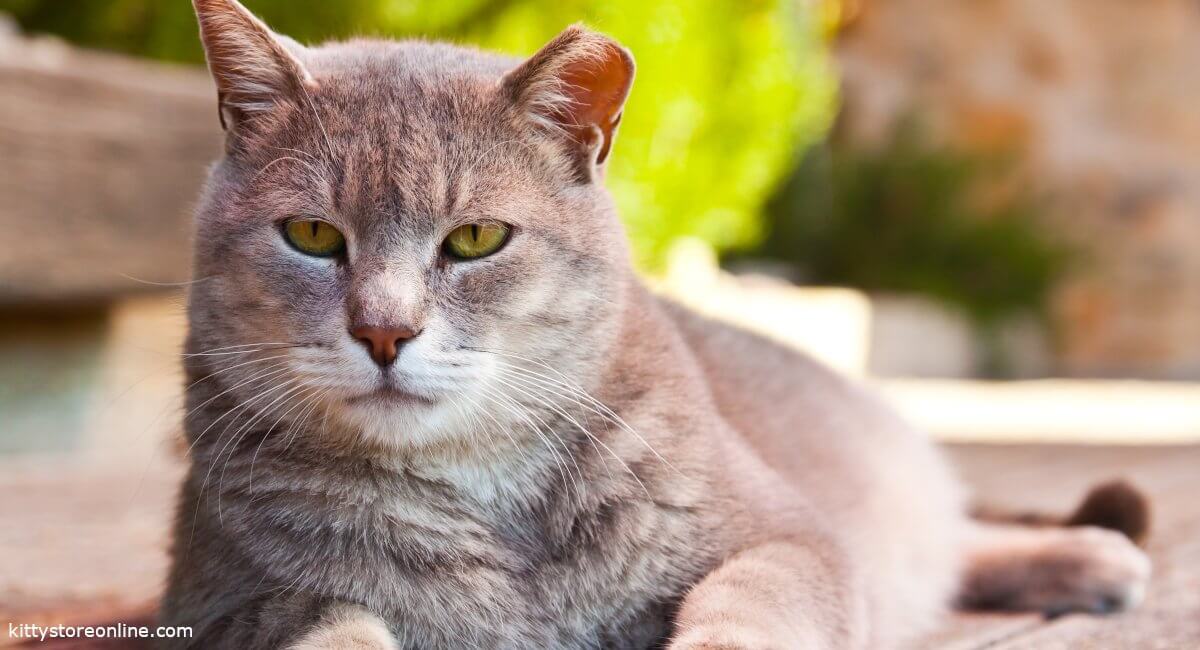Cats reach an average age of 15 years. Some get even older, others die earlier. How old a cat really becomes depends on genes and lifestyle. For example, improper diet or malnutrition and typical cat diseases can reduce the lifespan. Likewise, signs of aging can be slowed down by a healthy lifestyle and the supplementation of certain vitamins and minerals.
First signs of the age of the cat
The first characteristic of the aging of the cat is the gauze coloration of the hair around the mouth and in the head area, which begins at about the age of seven years. The coat on the body loses its luster with age. It may appear matted in areas that are hard to reach. Cat owners may observe that the cat is not as limber as it used to be and is not as agile, for example, due to joint wear.
Old cat changes and diseases
When vision and hearing decline, cats often wander around in confusion. They urinate outside the litter box in various places around the home, and appetite and thirst decrease. Old cats sleep a lot. Memory loss is also observed.
Old cat diet
After the age of twelve, cats are considered senior citizens who benefit from a special diet and regular health checks. Old cats often struggle with declining kidney function. If the first symptoms show, some organs are only functioning at ¼ of their original function. This is why regular health checks are so important. The kidneys can be supported in the diet of the old cat with high-quality protein. However, it must not be too much. Cats need phosphorus. Cat seniors, however, no longer as much as young cats. Too much phosphorus would put excessive strain on the kidneys.
In addition, the intestines of old cats become sluggish. Therefore, they benefit from easily digestible food, enriched with various vitamins. Senior cat food is tailored to the age-related metabolic changes. Also on the fact that older cats no longer move so much and therefore consume fewer calories you should have an eye.
Watch to see if the cat can handle the consistency of the food. Sooner or later, cats lose their teeth, making it harder for them to bite and chew. If so, a switch to soft food is a good idea.
Food supplements are useful in consultation with the veterinarian if there is malnutrition. If the bowel is sluggish, fish oil, psyllium or lactose can stimulate bowel activity. As a snack for old cats, fresh cheese or yogurt without additives are suitable.
Old cats, just like people, need to drink enough. You can increase the wet food/dry food ratio in favor of wet food for greater fluid intake. Instead of a water bowl, you can encourage the senior to drink with a drinking fountain. Even young cats appreciate running water more than water from a water bowl.
What to do if the old cat is overweight?
A healthy weight is of great importance in old age in cats. The wearing joints, cardiovascular system and immune system are less stressed at normal weight. If your cat is overweight, consult the veterinarian before starting a diet. This person knows best how the cat can absorb the necessary nutrients despite the diet. One percent to the body weight per week is ideal when aiming for weight loss. Radical diets could damage the fat metabolism of the liver in cats. Wet food has a lower energy density than dry food and is therefore considered ideal when aiming for weight loss. Alternatively, dry cat food is soaked in warm water for a few minutes beforehand. Thus, the same amount with the same calorie content makes you feel fuller.
When the cat doesn’t eat
Older cats like to eat smaller portions several times a day. If the sense of smell diminishes with age, it may help to warm the food because the smell will be more intense. Smelly appetizers such as liverwurst, malt paste or tuna can also encourage the cat to eat. If the cat is no longer as mobile, a raised food bowl or a food bowl with a rack can be a blessing. Or you can bring the food to the cat’s place instead of waiting for him to go to the bowl himself.
How to make life easier for your senior cat
If an elderly cat can no longer reach its favorite spots on its own, invest in a cat ladder to help it climb. A litter box with a low rim makes it easier for old cats to get in. Give the cat the opportunity to retreat at will and do not socialize a senior cat with a kitten. The senior is annoyed and the kitten is bored. Senior cats should be given the opportunity to go outside at any time if they are used to it. Senior cats still want to play, too. Small tasks and challenges keep them mentally fit. Present the cat to the veterinarian twice a year for early detection of age-related diseases. If the cat increases its volume, it may indicate old-age hearing loss or old-age dustiness. Ignore it if the senior insists on his will or develops analogous to humans some whims. That is the nature of old age.
